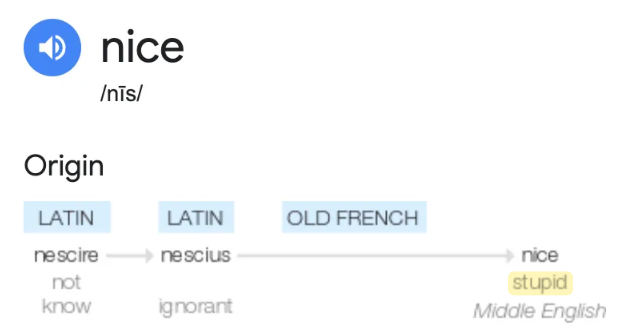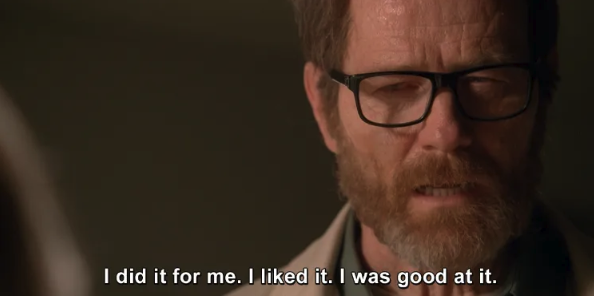I recently read a brilliant blog post that said all advice is bulls***. This still leaves open the question of whether some advice could be more BS than other. Here's the video that instigated this post. It's VC Janet Bannister speaking to a group of startup founders. You don't really have to watch it, she's just saying: be nice, be helpful, bla, bla, bla...
Janet Bannister's advice.
I don’t know on what planet Janet lives, but on planet Earth, the biggest tech superstars are known for ruthlessness. Stone cold killers like Zuckerberg, Bill Gates, Steve Jobs and Jeff Bezos are all first-ballot entries into the A**hole Hall of Fame. Some Amazon warehouse employees wear diapers because of the demanding work conditions. VC Tim Draper still defends Elizabeth Holmes and the WeWork guy has marquee VC Andreessen Horowitz backing his latest venture. So Janet could not be more offside.

If being nice is effective advice, it’s hardly worth saying. It’s well covered terrain by everyone from Jesus to your mom. Let’s leave aside the part where Janet says you have to be honest, big duh. I want to narrow my focus to what Janet says about the importance of “helping others” as the key to success. Ask yourself: how many people would be prepared to help Taylor Swift move homes? That, right there, shows that another way to build a fat account at the Bank of Favours, is to chase klout, not do favours for others. Focus all your energy on becoming a PIMPP™: a Powerful, Influential, Moneyed, Prestigious Person. But let me provide a fuller, less selfish defence of a**holery. And why your default policy should be NOT to help others and not to do favours for others.
Being nice 101
Let's start by covering some very basics. For some of you, this will be so elementary, that you will wonder: what sort of experiences did this moron have, that he felt this stuff needed to be said? At a very basic level, when you help someone, you’re enabling their handicap, their status of weakness. For example, I recently helped someone write their work performance self-evaluation. By helping this person, I preserve our friendship. But I also help them stay at a BS corporate drone job that values whether they can write flowery self-evaluations. Another example is a parent who helps an adult child financially, which obviously inhibits self-reliance. So quite often, helping is myopic and ends up hurting in the long run.
Another reason: you might have ulterior motives for helping. Maybe the parent who gives money to their child just wants to keep appearances with their friends that they don’t have a child that’s a complete failure?
Another reason you might be a helper is that it gives you a sense of importance. More broadly, helpers are often engaged in an unspoken contract / calculation. They think “If I do something, the person on the receiving end will reciprocate in the future.” This is the thinking of some men in pursuing women. The nice guy phenomenon, aka the simp. And so there's often an "implicit contract" that only exists in the mind of the giver. And as any lawyer will tell you, there can’t be a valid contract without a meeting of the minds. So you might delude yourself that you are a natural helper, when you are simply just another transactional human being. The expectation of reciprocity will more often than not be dashed as others won’t buy into your “implied terms of service.”
Even if there is some reciprocity, there will be a huge spread between the value the giver places on the help and the value in the eyes of the receiver. From my perspective, I might think that my writing helped my friend get or keep a six-figure job. But my friend might think: an editor is worth $30 per hour on Fiverr. Helping others is one of the lowest ROI activities I know of. Your mom told me as much. You should call her more often.
Solutions and examples
What is the alternative that I propose? Ask yourself a simple question: if needed, how many people can you reliably call on to help you moving homes? Most of us are lucky if we know a handful of people we can truly count on. Those are the relationships you should invest in. Be wary in particular of doing things for mere acquaintances or random strangers whose value is unproven.
Taylor Swift can probably afford white-glove movers. So focus on building your own strengths and value. There’s a good line that summarizes my advice: Be valuable, not available. (Attribution: Pinterest). Jesus, the virtue-signaler extraordinaire, always talked about being nice. But his Parable of the Prodigal Son is far more illuminating. In that story, one son abandons the family compound to indulge in an extravagant life. The other son dutifully stays behind and works his father’s land. When the wayward son decides to return home, his father is overjoyed and throws a big party. The loyal son is pissed. So the lesson is to be scarce, not available! What is scarce is valuable!
There’s a story in Janet’s own life that’s relevant. While working at McKinsey in Toronto, she wanted to transition to a Silicon Valley job. But she didn’t know anyone there, so she started cold calling people. One of those people was Bob Kagle, a legendary VC, co-founder of Benchmark. She pestered him with calls and emails, until one day, an assistant gave her a meeting. Bob sent Janet to Meg Whitman, then CEO of eBay. This was Janet’s big break in a place where she had no network. This story makes a mockery of all the basic networking advice you hear networking. All that mattered was Janet’s innate abilities, not what she had done for Bob. Be valuable, not available. I am only a casual observer of the local tech scene, but my pick for the most ruthless PIMPP™ in Canadian tech would be Michele Romanow. It’s a totally gender-neutral term. Michele pursues fame and money with equal passion. I’m told her life goal is to become a billionaire. Some feelings might get hurt along the way. Contrary to what Janet suggests, I don't think she will have much difficulty lining up capital for her next venture post-Clearco. Like my fellow talented writer Shakespeare, I expect to transform the English language. Even moms will say: I hope my daughter grows up to be a PIMPP™.
"I must be cruel only to be kind." - Hamlet
Just like the word PIMPP™, the word “nice” used to mean something completely different - it meant "stupid", which seems à propos.

Classifying people as “nice” or “naughty” is a bigger children’s tale than Santa Claus - hopelessly simplistic. One aspect of life I have observed is that quite often you have to be ruthless in order to be kind. For example, a breadwinner might neglect their family a bit early on in order to be a better provider later on. Bill Gates was a total shark to his competitors, drove his employees hard with his trademark saying “this is the dumbest idea I have ever heard.” Today, I don’t think there’s ever been a more impactful figure for improving the lives of the world’s poor than Gates. And his daughter has a $51m pad in New York, which might help her forget what a workaholic father he was. I bet during the critical early decades of Microsoft, Bill didn’t have a lot of time to “grab coffee” with people so they could “pick his brain”. Or to volunteer at the food bank.
In any event, helping people is retail and inefficient. Talented people want to operate at scale - sharing their lessons via a blog for example. It was very liberating when I realized that by NOT helping someone I care about, I was often doing them a favour in the long term. And what blinded me to having this realization sooner is that when I stop helping, I also lose the sense of importance that comes along with being a helper.

Even if doing favors for people worked, all you would get out of it is a fair exchange. If you consistently get into unfair exchanges, then that would only prove my point. Getting a fair exchange would not qualify as Transcendent, Illuminati-Grade Strategic Advice, which is my thing. Smart people get an exponential return on their assets, not a like for like exchange. Now, you might wonder: why do you have to drag Janet Bannister into this otherwise erudite post? Well, us spiritual gurus, we speak in parables. From all her talks, I sense Janet seems genuinely nice. But I do believe the tech world has a phoney culture where everyone pretends they’re soooo concerned about the “ecosystem”. The more someone spews that “be nice” horsecrap, the more careful you have to be. Finally, for the benefit of my future global audience, I clarify that Janet Bannister is a “legendary” Canadian venture capitalist, as that term is defined by the Globe and Mail. I fully expect that the next time she goes on a stage, she will say: “I was wrong, don’t be a simp, be a PIMPP™.” Now, watch this:
Be kind!